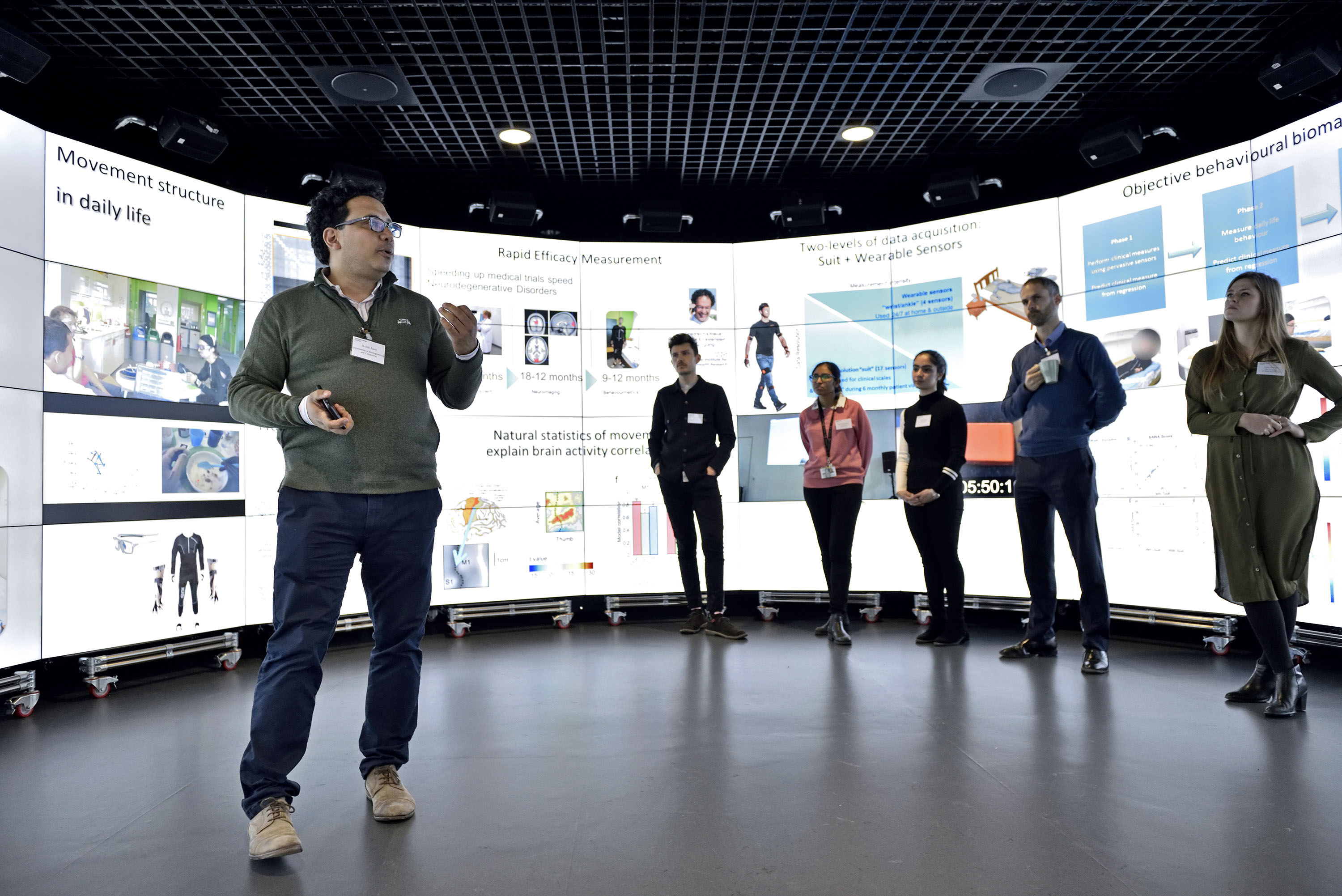Imperial Futures
.jpg)
Convergence science of unprecedented scale for unprecedented 21st century challenges
- Four new Schools of Convergence Science
Our goal: To create a new paradigm for scientific exploration where the integration of disciplines, convening of cross-sectoral partnerships and harnessing of new models of research stimulate innovation and lead to scientific progress.
Now: Imperial’s multidisciplinary Centres and Networks of Excellence galvanise a critical mass of researchers across disciplines to answer a challenge. Our Global Challenge Institutes have driven multidisciplinary approaches, engaged our external partners and strengthened the impact of our research. Our newest Centre for Sectoral Economic Performance – a joint initiative between Imperial’s Faculty of Engineering and Business School – will focus on productivity within the UK’s existing and emerging high-value industries across engineering, life sciences, and data science.
Imperial has a long history of pioneering interdisciplinary research in new fields. Our Department for Biomedical Engineering in the Sir Michael Uren Hub at our White City Campus integrates engineering and biomedical sciences with clinical practice to improve human health. The Dyson School of Design Engineering fuses design thinking and engineering knowledge and practice within a culture of innovation to help solve global problems with an emphasis on sustainability, entrepreneurship and societal impact.
Next: Over the next two years, Imperial will launch four cross-cutting Schools of Convergence Science that build on our disciplinary strengths and interdisciplinary culture to create deeply integrated research communities at unprecedented scale to deliver societal impact in key areas:
- Human and artificial intelligence;
- Health, MedTech and robotics;
- Climate, energy and sustainability; and
- Space, security and telecommunications.
These Schools of Convergence Science will provide a new portal for external partners, supporters and stakeholders, including more effective routes to Imperial’s research, education and innovation. They will amplify Imperial’s convening power, advisory and thought leadership – boosting our capacity to serve as a trusted partner for local and national governments, industry, third sector organisations and civil society. They will provide a sandpit for brainstorming, co-creation and hosting large interdisciplinary research programmes.
They will adapt, develop and trial new models of scientific exploration. The new Schools will provide our PhD students with unparalleled opportunities for convergence science to complement the support they receive in their host departments. And they will act as a useful lens through which to horizon-scan the educational landscape for new opportunities for future skills and training needs.
Building deep collaborations with internal and external stakeholders, each new School will work closely with industry and other knowledge partners, and with university and private sector accelerators, to build high-velocity, high-impact pathways from the lab to the real world.
“Imperial Futures will enable breakthroughs by convergence and systems approaches – imagining and creating the kind of world that future global citizens need: sustainable, resilient, safe, healthy, equitable.” - Professor Mary Ryan, Vice-Provost (Research and Enterprise)
AI at Imperial
 Artificial intelligence (AI) technologies are ushering in a transformative era, offering unparalleled potential to reshape industries and society. Imperial has the combined power of over 1,000 researchers across all our faculties and disciplines working to accelerate the safe and productive development and deployment of AI.
Artificial intelligence (AI) technologies are ushering in a transformative era, offering unparalleled potential to reshape industries and society. Imperial has the combined power of over 1,000 researchers across all our faculties and disciplines working to accelerate the safe and productive development and deployment of AI.
Imperial’s Data Science Institute provides foundational expertise in data science and engineering. Our new digital foundry I-X is driving transformations in AI, data science and digital technologies to address interdisciplinary challenges and support novel industrial collaborations, and is part of the Schmidt Futures Fellowship programme supporting the next generation of leaders in AI.
Imperial is leading the development of the next generation of AI skills through our two Centres for Doctoral Training (AI for Health; and AI for Digital Healthcare) and half the Directors of Science and Innovation at the UK’s national institute for data science and AI, the Alan Turing Institute, will be from Imperial.
Our AI ecosystem is strengthened by research collaborations with industry leaders such as GSK, Thomson Reuters and Amazon Web Services and supports AI-based startups across a range of sectors including healthcare and drug discovery, energy systems, autonomous vehicles, financial services and education technologies.
Additionally, our Science Policy Fellowship scheme brings policy makers working on AI across government together with the deep technical and regulatory expertise of our researchers.


